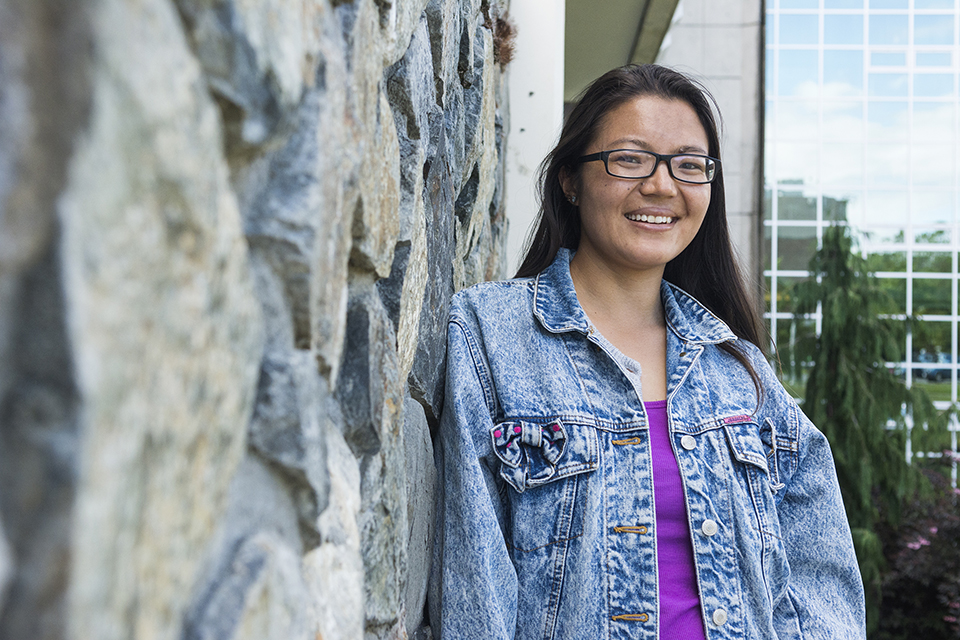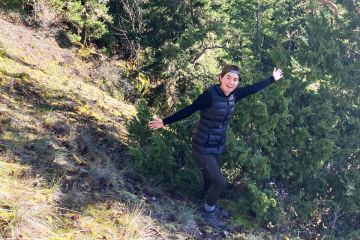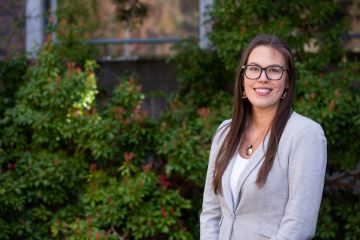Nepali student inspires us all to widen our world view
- Kate Hildebrandt

“In essence, she’s a time traveller from the 15th century,” wrote Shirley Blair in an open letter to the University of Victoria seeking admission on behalf of her sponsored Nepali student, Dechen Dolma Lama.
Blair is a Canadian volunteer leading an aid project and boarding school in Kathmandu for Himalayan children. Her support helped transport Lama from one of the most impoverished villages in Nepal to UVic where she graduates this month with a bachelor’s degree in child and youth care.
Gaining entrance to a sponsoring boarding school was a miracle, says Lama, as cultural norms across Nepal favour education for boys and early marriage for girls. Lama, however, was an outstanding student. She would go on to be one of four of 840 students to earn a full two-year scholarship with a private school in Zurich, Switzerland.
Today, when asked her age, Lama pauses: “I’m 25 but, at home, we follow the lunar calendar,” which accounts for a difference of 275 fewer days. Home is Lho village in the Nubri region, situated about 12,000 ft. above sea level, where people follow the moon to track time.
Before, I generalized. Now, I see life from a different angle and am much more open-minded.
The serenity of this place belies the hardships locals face as seasonal nomads and subsistence farmers. Parents work the fields while children forage for firewood, tend livestock and subsist on two meals a day “if they are lucky.” Butter tea and a bread of roasted barley flour are diet basics.
Now the eldest of six, Lama says her older sister died of hunger. She explains how infant mortality is very high. “There is no sanitation, no health care, no electricity, no running water. To access the nearest road is a five-day walk.” While most can’t read or write, except for nuns and priests, the rural Nepali people are genius at subsisting within such a meagre and challenging, yet enduring, environment.
Lama is living testament to this perseverance, having worked hard labour as a child yet persuading family and local monks to let her attend school. As is the way, she has vowed to return and teach for two years at the boarding school where she studied as payment for the privilege.
The move to the private school in Zurich was a major change in every sense as Lama did her best to assimilate to a Christian-based culture. For example, she found the European diet a challenge for her rural palette. As Buddhists shun the taking of any life, she did not eat meat at first. Boiled vegetables still make her cringe.
Her greatest upset, though, was seeing people leave food on their plate.
“People take more than they need,” she says quietly. Witnessing excessive over-consumption in Europe and here in Canada, she said, “this was very difficult.”
Adapting to Western culture is all part of her learning, says Lama. She found her university education even more transformative. “One begins by learning about ourselves,” she says of her time in UVic’s School of Child and Youth Care. “Reflection is essential to understand how things impact you.
This changed my perspective. Before, I generalized. Now, I see life from a different angle and am much more open-minded.”
Lama hopes to return to UVic and earn a master’s degree. Her goal is to work with families new to Canada. “Dechen’s journey to UVic is both a riveting story and a humbling reminder for those of us who complain about first-world problems,” says Jin-Sun Yoon, a teaching professor in Child and Youth Care.
Recalling Lama’s influence in the classroom, Yoon says, “She rejects sympathy. Instead, she inspires those around her to widen their world view.”
Photos
In this story
Keywords: convocation, graduation, student life, children, child and youth care, international
People: Dechen Dolma Lama





